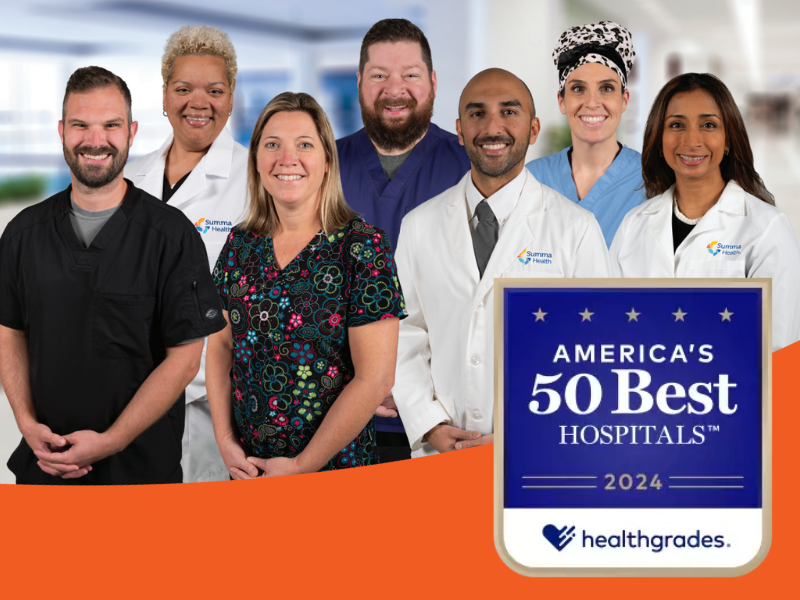Maternity Care
Your Pregnancy Journey

Pregnancy Healthy Start
Having a baby is an exciting time in a person’s life. Whether you are already pregnant, or simply thinking about having a baby, there are steps you can take to give your baby the best possible start in life.

Preparing for Baby
At times, pregnancy can be overwhelming when you consider all you have to do to prepare for your little one’s arrival. We break down the essential tasks to pave the way for a smooth arrival.

Delivery Support
Summa Health’s birthing center offers the best care for you and your baby. We offer a variety of birthing options, 24/7 in-house maternity specialists and an onsite Akron Children’s NICU.

Postpartum
Postpartum, or the first six weeks after delivery, is a period of adjustment and healing for both mother and baby. Summa Health has care and resources specifically for postpartum mothers and babies.

Meet the OB/GYN Team
Care Stories
Locations
Birthing Center Location
Summa Health System - Akron Campus
141 N Forge St
Akron, OH 44304
View on map.
OB/GYN Locations
White Pond Medical Center
51 Park West Blvd, Suite 200
Akron, OH 44320
View on map.
Women's Health Center
75 Arch St, Suite B1
Akron, OH 44304
View on map.
Barberton
201 5th St NE, Suite 6
Barberton, OH 44203
View on map.
Pride Clinic
1260 Independence Ave
Akron, OH 44310
View on map.
Cuyahoga Falls Medical Center
1860 State Road Suite D
Cuyahoga Falls, OH 44223
View on map.
Green
1700 Boettler Road, Suite 225
Uniontown, OH 44685
View on map.
Medina Medical Center
3780 Medina Rd, Suite 200
Medina, OH 44256
View on map.
Rootstown Medical Center
4211 State Route 44, Ste 1550
Rootstown, OH 44272
View on map.
Springfield
1463 Canton Rd
Akron, OH 44312
View on map.
Stow-Kent Medical Center
3825 Fishcreek Road, Suite 200
Stow, OH 44224
View on map.
Wadsworth-Rittman Medical Center
195 Wadsworth Rd, Suite 301
Wadsworth, OH 44281
View on map.
Maternal Fetal Medicine Location
Akron Children’s Hospital
215 West Bowery Street, Level 5
Akron, OH 44308
View on map.

